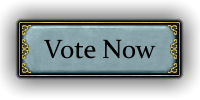Election Results, Government Coalition and Cabinet Appointments of 1865:
The normal election and its results were overshadowed by a failed Revolution by the KPD and its sympathizers.
This is what happened:
In the early morning hours on election day Inspektor Ulrich Schweig of the Berlin Police gets approached by one of his contacts, he has information that is vital to the security and stability of the German Empire. What an exaggeration, he thinks as he makes his way to the Elbmetall factories outside of Berlin. Once arrived his contact leads him to several workers, they look scared, why Ulrich cannot tell. The leader of the group, a contact of his within communist circles begins his story:
On the campaign trail Paul Müller of the KPD and many leading members of his party were holding speeches and rallies in factories across the nation, many of the owners did not let them inside, so the rallies were held outside. During those rallies they talked about the “glorious social Revolution”, the usual talking points of the Communists. However what happened after the rally was over, is what led his contact to reach out to the inspector. After the rally Paul Müller and company stayed behind to talk with their supporters and the factory workers, in these conversations Müller advocated for the destruction of the royal family, the murder of its members, the dissolvement of its titles. He said that capitalists and landowners had no right to hold their positions and should be murdered. He mentioned that his views were held by all the other members of the communist party, and that they were in the process of plotting the revolution. From the Elbmetall workers in particular he was inquiring about weapons, as they worked in an arms factory.
The Inspektor could see why the workers were scared, they got mixed up in the planning phase of a violent Revolution to overthrow the government and the Kaiser! He calms down the witnesses and takes them to the station to make their statements, then he contacted the Gendarmerie and Generalfeldmarschall Krüger of the I. Korps in Berlin to be ready, this could get ugly. He assembled his men and went to the Party Headquarters of the KPD, where the Gendarmerie was already waiting. Together they raided the building securing documents and suspects who will later corroborate the story of the factory workers. Warrants were swiftly issued and the entire KPD leadership put under arrest. The charges: High Treason against the Empire under §80 and §81 of the penal code. The Kaiser is informed and issues orders for the army to be ready, these events will cause an uproar in the political landscape of Germany.
All members of the KPD are now under arrest for High Treason
This is what the Deutscher Reichs-Anzeiger had to say about it:
Following these events an emergency session of the Reichstag was called and they passed the follwoing constitutional amnedments unanimously in response:
Protection of Germany Act - proposed by Hans von Klopp (PVP)
The communists have proven themselves to be a danger to the people, the state, and the social order. They have voiced openly their wishes for violent revolution and the destruction of every institution of the nation. They should be banned from the Reichstag, they should be banned from the nation. Their corruption of our people and our country must end. We must take great and immediate action.
Effect : ALL COMMUNIST INSTITUTIONS ARE DECLARED ILLEGAL, AND ASSOCIATING WITH THEM BECOMES A CRIME. A COMMITTEE FOR CIVIL ORDER COMPRISING ONE MEMBER SELECTED BY THE CROWN, ONE SELECTED FROM BY THE GOVERNMENT, AND ONE SELECTED FROM THE OPPOSITION WILL BE ESTABLISHED BY TO DETERMINE WHICH INSTITUTIONS ARE ‘COMMUNIST’. AN INSTITUTION IS OUTLAWED BY THE CONSENT OF TWO MEMBERS OF THE COMMITTEE, AND WITH THE APPROVAL OF THE KAISER. ANY INSTITUTIONS DECLARED COMMUNIST WILL HAVE TO BE CONFIRMED BY A DECISION FROM THE COURTS.
Amendment to Part 2A of the Constitution - proposed by Karl Birnbaum (NLP)
As there is currently no clausule in the Constitution about what happens to permanently vacant seats in the Reichstag, a new clausule should be added to allow for snap elections in those districts which are not being represented. The clausule will read as following:
If a seat in the Reichstag were to become permanently vacant, because of the fact that its elected representative is no longer able to serve during the term he was elected, for example because of his imprisonment or his death, then elections will take place in the district represented by the vacant seat.
Effect: the vacant seats will be redistributed proportionally to the parties of the Reichstag, along the percentages of the most recent elections, while also giving a 15% boost to the party which is ideologically closest to the previous holder of the vacant seat.
The Neue Preußische Zeitung had this to say about the events:
-----------------------------------------------------------------------------------------------------------------------------------------------
After the elections in the districs in question the Reichstag looked like this:
A coalition of DkP-NLP-PKW-SPD emerged from this distribution and Generalfeldmarschall Friedrch Krüger was elected Reichskanzler of Germany.
The Kaiser appointed the following Cabinet to assist him:
Ministry for Foreign Affairs: Karl Jürgen Krieger (PKW)
Ministry of Interior: Heinrich Berg (NLP)
Ministry for War: Gerhard zu Muskau (DkP)
Ministry for Trade and Commerce: Karl Birnbaum (NLP)
Ministry of Finance: Wilhelm Henckel Von Donnersmarck (DkP)
Ministry of Justice: Gustav Schwarzmann (SPD)
The remaining posts are occupied by apolitical individuals (NPCs)
Furthermore in accordance to the Amendments the following persons are appointed to the Komitee für Zivile Ordnung:
Representative of the Crown. Crown Prince Friedrich von Preußen
Representative of the Government: Alexander von Hoth (DkP)
Representative of the Opposition: Hans von Klopp (PVP)
Stay tuned: Next up Gameplay and summar of Reichstag (1865) as well as the official ban on the KPD!





















































































































































































































